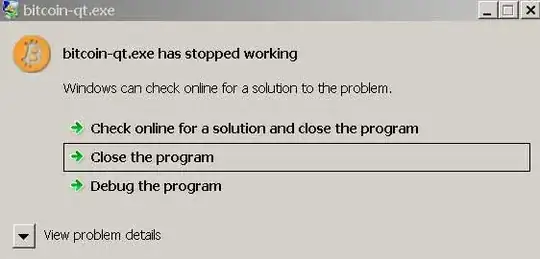I'm running the "official client" (12 MB zipped version) on a Windows platform.
What are the risks (to my wallet) when the computer crashes due to overheating, BSOD, power failure, etc?

Is the "official client" crash-resistant?
I'm running the "official client" (12 MB zipped version) on a Windows platform.
What are the risks (to my wallet) when the computer crashes due to overheating, BSOD, power failure, etc?

Is the "official client" crash-resistant?
Yes, mostly, but there are some things you should know.
Your wallet is stored as a separate file. Your wallet file gets changes written to it as new blocks are received and transactions are made, etc. The chances of a crash occurring during a write to your wallet are probably minimal, but you should have a backup of your (encrypted) wallet anyway. This is by far the most important point. Once your wallet is encrypted with a very strong password (the client provides this function), you can store copies of it in insecure locations, so you always have a copy somewhere - store it in gmail, send it to your family etc. You should only need to make an additional backup every 50 transactions. Bear in mind the receiving address descriptions aren't encrypted though. Running the client with the -rescan option may fix minor issues.
The client will refuse to work if a failed attempt at double-spending is detected, but that's not really what you're asking. Besides, there appears to be a fix for the problem.
The block chain takes a long time to download, so there is a risk that a crash would required you to download it again. If the client is closed (gracefully) while it is downloading the block chain, it resumes where it left off with no issues; I would guess it would probably do the same thing in the event of a crash, but it's only your copy of the block chain that's really at stake.
Realistically, once you've got your wallet encrypted with a strong password and backed up in multiple locations, the biggest remaining risk is from theft through a virus or malware. Quote from Gavin Andresen: "If your computer is infected, then it cannot be trusted, and there is no software in the world that can keep your bitcoins safe if they are stored on it."